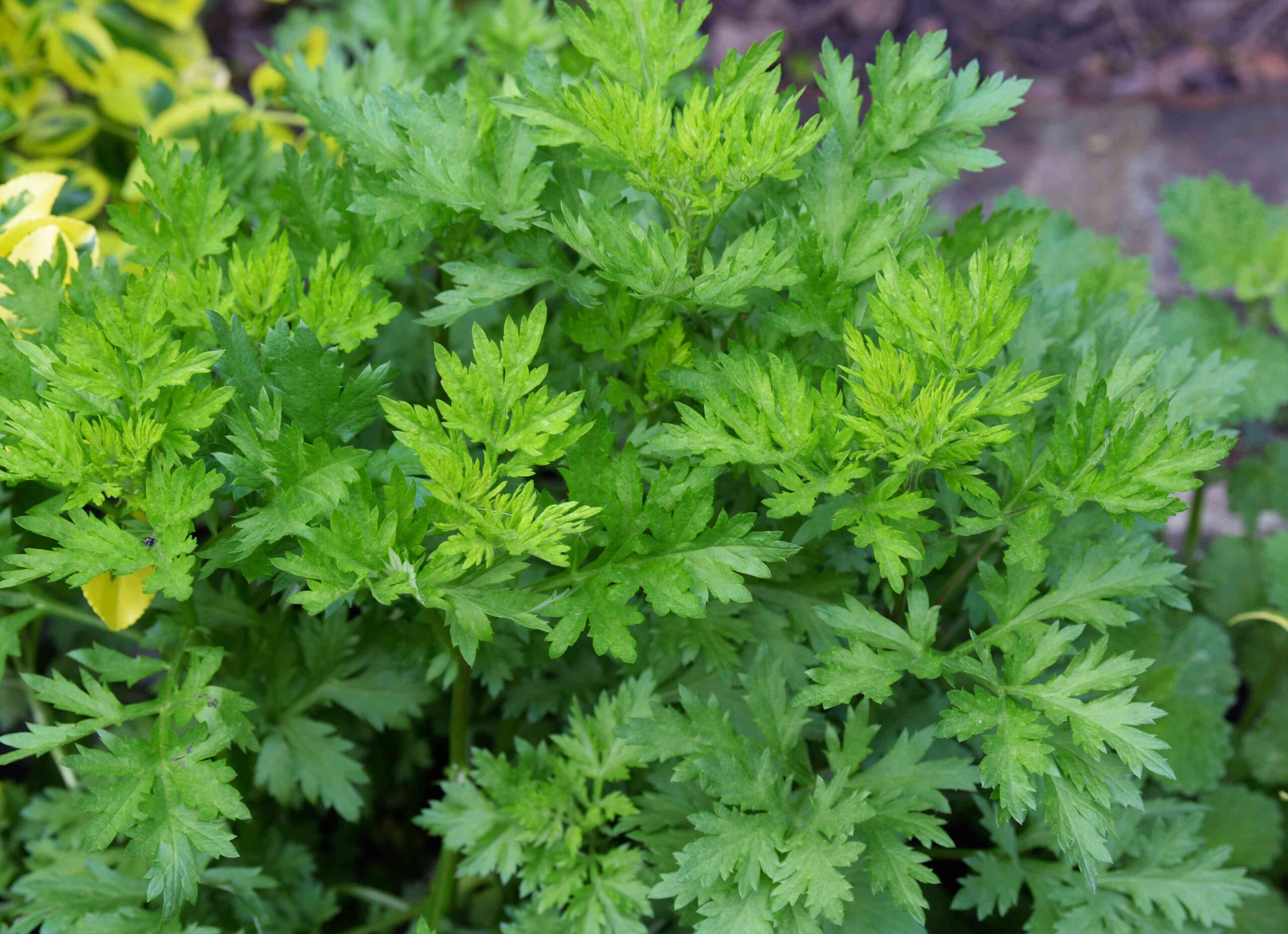Ever walked past a tall, leafy plant along a roadside and wondered if it held a hidden story, a secret health benefit? That common “weed” you might have dismissed is actually Mugwort (Artemisia vulgaris), a time-honored medicinal herb with a rich, almost mystical history. For centuries, across continents and cultures, this versatile plant has been cherished for its remarkable ability to support digestion, promote deep relaxation, and gently nurture women’s health.
Often called the “mother of herbs” in the Middle Ages, Mugwort is now re-emerging as a natural, powerful addition to modern family wellness routines. Ready to discover the surprising ways this ancient remedy can benefit your health, how to use it safely, and why it’s earning a place in the hearts (and medicine cabinets!) of health-conscious families everywhere? Let’s dive in! 👇
What Is Mugwort and Why Is It So Special?
Mugwort is a resilient perennial herb belonging to the Asteraceae family, the same botanical family as sunflowers and daisies! Native to Europe, Asia, and Africa, it has since spread its roots across North America, thriving in diverse climates. Its aromatic, slightly bitter leaves and roots have been used not only in traditional medicine but also in culinary dishes across various cultures, from ancient European folklore to the intricate practices of Traditional Chinese Medicine (TCM).
- Nutrient Powerhouse: Mugwort contains a fascinating array of beneficial compounds, including flavonoids (known for their antioxidant properties), sesquiterpene lactones (which may offer anti-inflammatory effects), and potent essential oils like camphor and cineole (per Healthline).
- Active Compounds: It also boasts compounds like artemisinin and thujone, which are believed to contribute to its anti-inflammatory and calming effects (according to WebMD).
- Cultural Significance: Beyond its medicinal uses, mugwort holds deep cultural roots. It’s famously used in moxibustion in Chinese medicine (a form of heat therapy), and in European folklore, it was often hung in homes as a protective herb, warding off negative energies (per Wikipedia).
While modern scientific studies on mugwort are still catching up to its vast traditional uses, reputable sources like Mayo Clinic acknowledge that its historical applications for digestion and relaxation certainly warrant further research, making it a promising herb for mindful home use when handled with care.

Game-Changing Benefits of Mugwort: Nature’s Gentle Touch!
This humble herb is a true multi-tasker for your family’s well-being.
- Digestive Dynamo (Happy Gut! 🍎): Struggling with an upset stomach, bloating, or that uncomfortable “too full” feeling after a rich meal? Mugwort’s naturally bitter compounds are believed to stimulate digestion, making it a traditional go-to for gut health. Its ability to promote gastric juices and bile secretion can significantly ease discomfort, making it ideal for families seeking natural digestive support.
- Digestive Aid: Bitter substances in mugwort can stimulate saliva and gastric juices, improving overall digestion (per Medical News Today).
- Bloating Relief: It may help reduce gas and bloating, a long-standing use in traditional European medicine (per Verywell Health).
- Liver Support: Mugwort is also considered a liver tonic, gently supporting bile production, which is crucial for fat digestion and detoxification (according to RxList).
- Beyond Tea Tip: A 2022 study suggested that moxibustion, a practice using mugwort, may help with irritable bowel syndrome (IBS) symptoms, though more research is needed. Harvard Health recommends pairing bitter herbs like mugwort with a fiber-rich diet for optimal gut health.
- Relaxation & Sleep Ally (Calm Mind, Restful Nights! 😴✨): If stress or sleepless nights are affecting your family’s peace, mugwort’s mild sedative properties may offer a natural way to unwind. Traditionally used to calm nerves and promote restful sleep, it’s a gentle option for occasional relaxation and can even be associated with vivid or lucid dreaming.
- Calming Effects: Sesquiterpene lactones in mugwort may have a soothing effect on the nervous system (per Healthline).
- Sleep Support: Anecdotal evidence suggests mugwort tea or even the subtle aroma from dried leaves can promote deeper, more restful sleep and enhance lucid dreaming (per Eatweeds).
- Anxiety Relief: It has been used in traditional Chinese medicine to ease mild anxiety (per Gaia Herbs).
- Beyond Tea Tip: While human studies are limited, WebMD notes mugwort’s historical use for insomnia and anxiety, suggesting it may complement relaxation techniques like deep breathing or gentle meditation. Always consult a doctor for chronic sleep issues.
- Women’s Health Companion (Menstrual Comfort! 💖): Mugwort has a rich, ancient history as a “women’s herb,” often used to ease menstrual discomfort and promote regular cycles. Its gentle uterine-stimulating properties make it a traditional remedy for reproductive health, though caution is essential due to its potential effects.
- Menstrual Relief: May help reduce cramps and regulate irregular periods (per Verywell Health).
- Uterine Support: Artemisinin in mugwort may promote gentle uterine contractions (per Health.com), which can aid in shedding the uterine lining.
- Historical Significance: It was named after Artemis, the Greek goddess of childbirth, highlighting its historical role in women’s health (per Gaia Herbs).
- Beyond Tea Tip: Medical News Today advises that while mugwort shows promise for menstrual issues, scientific evidence is limited, and it should not be used during pregnancy due to miscarriage risk. Always consult a doctor before using mugwort for menstrual issues, especially if you are on medications.
- Immunity Booster & Inflammation Fighter (Seasonal Wellness! 🛡️): Mugwort’s antioxidant and anti-inflammatory properties may help protect your family’s health by supporting immunity and reducing inflammation throughout the body. These benefits make it a versatile herb for seasonal wellness and overall vitality.
- Antioxidant Power: Flavonoids and phenolic acids found in mugwort help combat oxidative stress, protecting your cells from damage (per Tua Saúde).
- Antibacterial Effects: Essential oils like cineole may possess properties that fight certain bacteria, such as E. coli (per Health.com).
- Inflammation Reduction: May help ease inflammation in various conditions, though more studies are needed (per Tua Saúde).
- Beyond Tea Tip: Harvard Health suggests that antioxidant-rich foods support immunity, and mugwort can be a part of this approach when used in moderation. Consider adding a pinch of dried mugwort to herbal tea blends with chamomile or peppermint for a synergistic effect.
How to Use Mugwort Safely at Home: Practical Tips for Your Family
Mugwort is generally safe in small, controlled amounts, but its potent compounds, like thujone, require caution to avoid side effects. Proper preparation and moderation are key to ensuring your family can enjoy its benefits safely.
Mugwort Tea (The Classic Way!):
- Ingredients: 1 teaspoon of dried mugwort leaves per 1 cup of hot water.
- Instructions: Add dried mugwort to a cup. Pour over hot water and cover (to retain essential oils). Steep for only 1-2 minutes (longer steeping can make it too bitter and increase thujone concentration). Strain and drink.
- Dosage: Limit to 1 cup daily, preferably after meals for digestion, or 30 minutes before bed for relaxation.
Culinary Use (Flavor & Function!):
- Young Leaves Only: Use only young, tender mugwort leaves sparingly.
- Pairing: Traditionally added to soups or fatty dishes like roast poultry or pork to aid digestion, as its bitterness helps cut through richness (per Britannica).
- Moderation: Use in very small quantities due to its strong flavor and thujone content.
- Aromatherapy & Smudging (Calming Atmosphere!):
- Smudging: Burn dried mugwort as a smudge stick for a calming, purifying atmosphere. Ensure excellent ventilation and never leave unattended (per Learning Herbs).
- Pillow Sachets: Place a small sachet of dried mugwort under your pillow to promote restful sleep and vivid dreams.
Mugwort-Infused Oil (Topical Relief!):
Preparation: Infuse dried mugwort in a carrier oil (like olive or almond oil) for a few weeks in a cool, dark place.
Use: Dilute the infused oil further with more carrier oil (e.g., 1 part infused oil to 3 parts fresh carrier oil) and use for gentle massage on sore muscles, joints, or minor skin irritations (per Learning Herbs). Always do a patch test first!
⚠️ Crucial Precautions & Safety Tips: Your Family’s Health Comes First!
While mugwort offers incredible benefits, it’s potent and requires careful use.
- Choose Quality & Identify Correctly: Always use organic, dried mugwort from reputable sources to avoid contaminants. Crucially, ensure you are using Artemisia vulgaris and not other, potentially toxic species of Artemisia.
- Start Small & Avoid Overuse: Begin with a very small amount (e.g., 1/2 teaspoon for tea) to assess your tolerance. Limit daily intake to 1-2 cups of tea or small culinary amounts to prevent potential thujone toxicity, which can cause nervous system effects (per WebMD).
- Allergy Alert: Mugwort may cause allergic reactions, especially in individuals sensitive to ragweed, celery, birch pollen, or other plants in the Asteraceae family. Always do a patch test with mugwort oil or tea before widespread use.
- Pregnancy & Breastfeeding: STRICTLY AVOID! Mugwort is unsafe during pregnancy due to its uterine-stimulating properties, which can induce contractions and increase miscarriage risk. It should also be avoided during breastfeeding due to insufficient safety data (per WebMD).

Medication Interactions:
- Diabetes: Mugwort may affect blood sugar levels, so avoid if you have diabetes or are on blood sugar-lowering medications without strict medical supervision (per Health.com).
- Sedatives: It may enhance the effects of sedatives due to its calming properties.
- Blood Thinners: Use with caution if on blood thinners, as some compounds might theoretically affect clotting.
Always consult your doctor or pharmacist if you are on any medications or have underlying health conditions before using mugwort.
Setting Realistic Expectations: While mugwort has a storied history, it’s not a cure-all. Modern research is still catching up to traditional claims. Benefits like improved digestion or relaxation may be noticeable within days to weeks (per Healthline). Mugwort supports, but does not replace, medical treatments or a healthy lifestyle (per Harvard Health). Many benefits, like pain relief or immune support, rely on anecdotal evidence, warranting more scientific study (per Medical News Today).
Embrace Nature’s Power, But Be Wise!
Mugwort is truly more than a roadside weed—it’s a medicinal plant with incredible potential to support digestion, relaxation, women’s health, and immunity. Whether you sip it as tea, use it in cooking, explore its calming aroma, or apply it topically, this “mother of herbs” can be a natural ally for your family’s wellness.
Start with small amounts, prioritize safety, and always, always consult your healthcare provider when in doubt. Discover how mugwort can bring a touch of nature’s ancient wisdom to your modern home. Why not try a small cup of mugwort tea tonight and see how this fascinating herb fits into your health routine?
Beta feature
Beta feature



